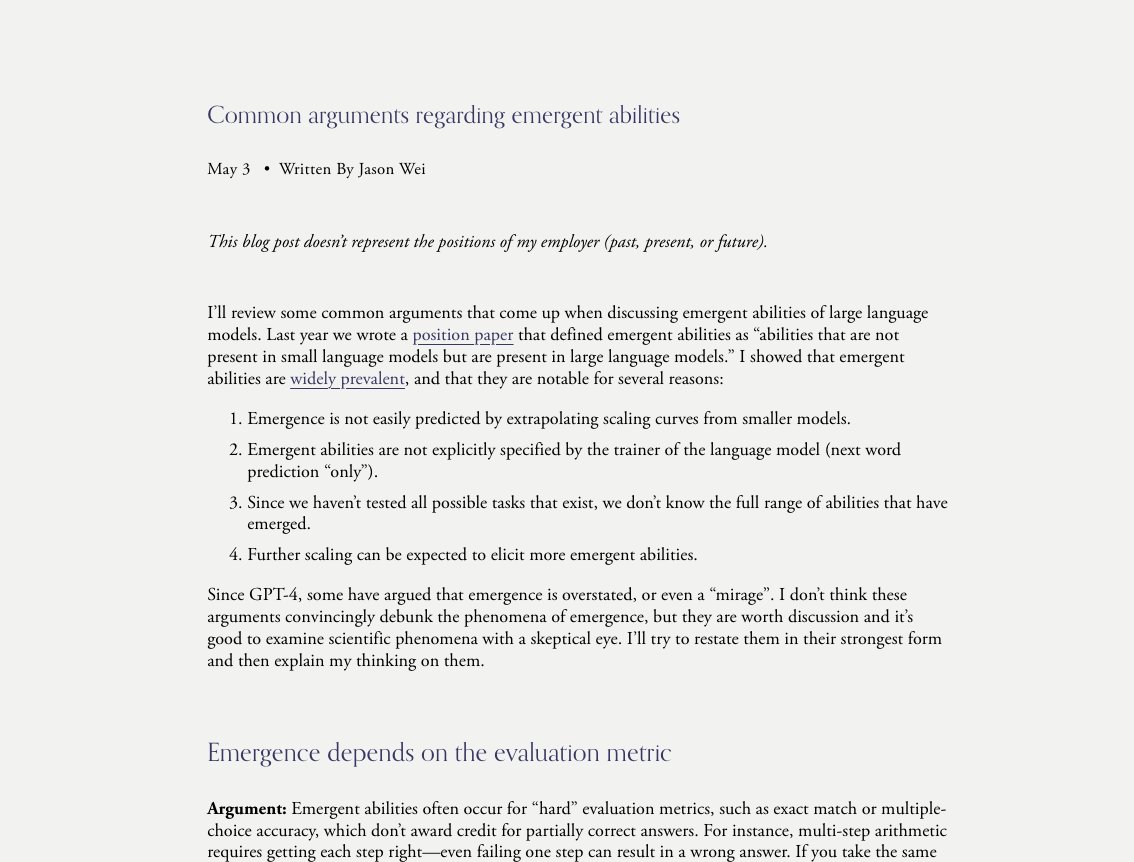
How to get URL link on X (Twitter) App


 Argument 1: Emergence occurs for “hard” evaluation metrics like exact match or multiple-choice, and if you use metrics that award partial credit, then performance improves smoothly (arxiv.org/abs/2304.15004).
Argument 1: Emergence occurs for “hard” evaluation metrics like exact match or multiple-choice, and if you use metrics that award partial credit, then performance improves smoothly (arxiv.org/abs/2304.15004).

 So the idea that emergent/unpredictable scaling behavior is "cherrypicked" is simply untrue.
So the idea that emergent/unpredictable scaling behavior is "cherrypicked" is simply untrue.https://twitter.com/percyliang/status/1622391583109939202(1) Many don't know, but the code-* API is free, and you can run three sizes of models: curie-001, davinci-001, and davinci-002. Davinci-002 is comparable with PaLM.

https://twitter.com/_jasonwei/status/1592210199460253696

 1. I first argue that language models like GPT-3 can generate a stream of thought similar to how cascade of thoughts that seem to arise in our minds.
1. I first argue that language models like GPT-3 can generate a stream of thought similar to how cascade of thoughts that seem to arise in our minds.